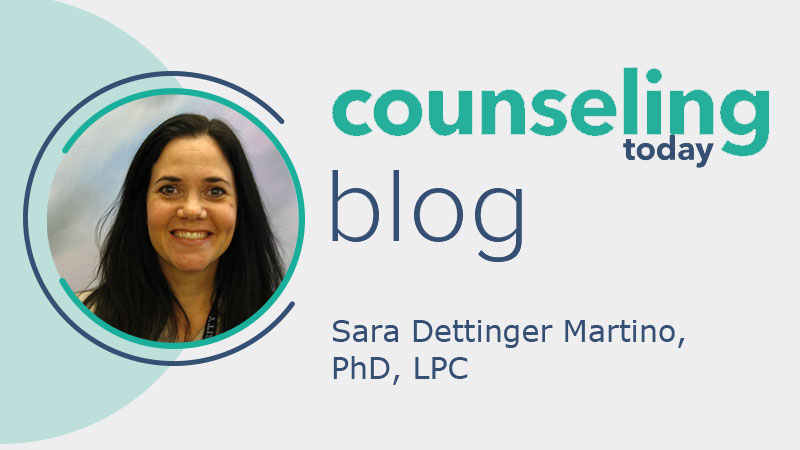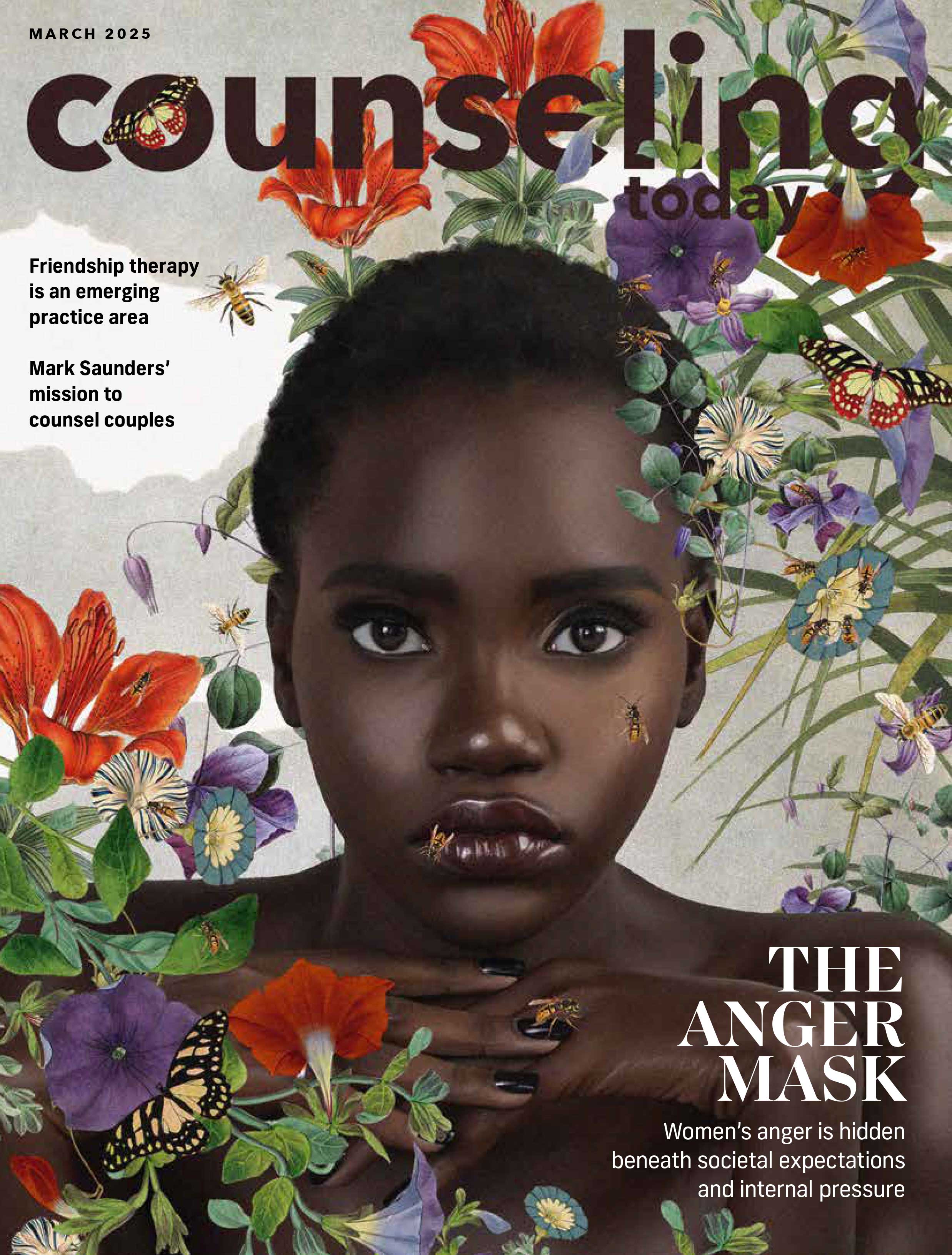6 Ways to Have a Better Relationship with Social Media
 By Sara Dettinger Martino, PhD, LPC
By Sara Dettinger Martino, PhD, LPC
Research from the last decade shows that increased time spent on social media may lead people to experience depression, stress, negative emotions and unhealthy comparisons. Yet social media has become such a large part of people’s lives that for many, especially teenagers, it is their single most important relationship. Professional counselors can help their clients increase their awareness of how that relationship makes them feel, learn to manage that relationship and strengthen their sense of control over social media. Here are six ways counselors can help clients think about their relationship with social media.
1. Consider the “Give and Take” in the Relationship
The first thing to examine in your relationship with social media is what you give to and take from it. How does it make you feel? How much do you devote to the relationship without getting anything back?
Many people scroll social media looking and waiting for something to make them feel good, but finding what they seek takes a long time, or one post or comment can make them feel bad. This is not a sign of a healthy relationship. If you spent hours with your significant other, yet they ignored you or made rude comments, would it seem healthy to stay with them?
2. Set Healthy Boundaries
If you spent so much time in a relationship that it affected your schoolwork, job or other responsibilities, you would need to set healthy boundaries. The same is true with social media. I often ask clients to jot down the amount of time they spend on social media for one week or use a time-tracking app. If they spend more than an hour or two scrolling or posting, then we talk about it.
For some clients, working toward a healthier relationship with social media is as simple as reducing the amount of time they allow themselves on social media. Others have to limit their use to certain days of the week (for example, no social media on weekends).
I also help clients set boundaries for how they use social media. Research shows that upward social comparison comes from scrolling behaviors (i.e., viewing other people’s posts). Limiting your number of connections or friends is one way to set different boundaries. Hide or unfollow people who do not make you feel good. Reduce your number of friends.
3. Cut Yourself Off Emotionally when Needed
If social media makes you feel bad more often than it makes you feel good, it may be time to break up. You can consciously choose to cut off social media. Try setting it aside for a bit and see how that feels. You don’t necessarily need to cut off social media forever; it will still be there if you decide to go back.
4. Build a Healthy Self-Image
Another tactic in navigating your relationship with social media is focusing on the things you want to post. Instead of incessantly looking at other people’s lives, focus on yourself and how you feel about yourself. This is not a plea to take more selfies; rather, look into who you are. Is that the person you portray on social media? You can control and change yourself, not others. If you don’t like the self you are portraying on social media, work on building a healthier self-image.
5. Reduce Comparisons to Other Relationships
Focusing on self-image through social media may help you reduce your comparison to other relationships. Don’t assume you are viewing other people’s true lives on social media because many people present a carefully curated vision of themselves. Their relationship with social media might not be healthy. They might not have a positive self-image or be able to show their true selves. Keep this in mind to help avoid negative feelings of comparison.
6. Focus on Posting Behaviors
You can change your relationship with social media by focusing more on posting behaviors. For example, were you part of an event you want to share with followers? Do you want your faraway friends to see a picture you’re proud of? Shift your focus to what you enjoy posting instead of scrolling through other people’s life highlights.
The biggest benefit to looking at social media from a relationship perspective is understanding you can always change that relationship. If the relationship is not working, set healthier boundaries or cut off the relationship for a bit. At the same time, you can also build a healthier relationship with social media by using the techniques above. Social media is here to stay. The better we learn to live with it, the healthier we will be.
Note: Opinions expressed and statements made in this blog do not necessarily represent the policies or opinions of ACA and its editors.

